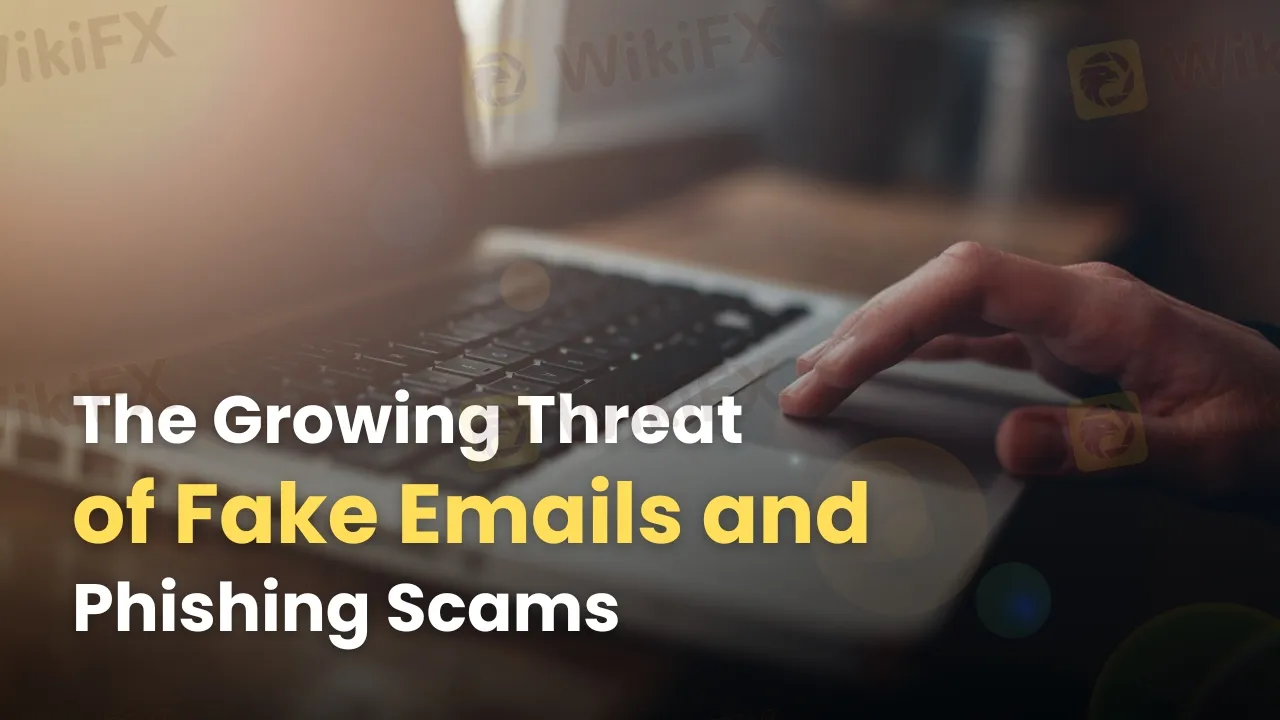简体中文
繁體中文
English
Pусский
日本語
ภาษาไทย
Tiếng Việt
Bahasa Indonesia
Español
हिन्दी
Filippiiniläinen
Français
Deutsch
Português
Türkçe
한국어
العربية
The Growing Threat of Fake Emails and Phishing Scams
Abstract:Fake emails and phishing scams are on the rise in crypto, targeting users with fraudulent wallet setup instructions. Stay vigilant and protect your assets.

The crypto community has been increasingly targeted by fraudulent emails posing as major crypto exchanges, tricking users into creating wallets with pre-generated recovery phrases controlled by scammers.
Social engineering attacks are also on the rise; hackers have recently infiltrated Kaito AIs social media accounts to influence token prices, and malicious spoof Zoom calls have targeted cryptocurrency founders.
In addition, physical attacks and high-profile security breaches are becoming more common. Kaito AI and its creator, Yu Hu, were victims of a social media hack where attackers took control of the project's X account and spread false information. They falsely claimed that users' funds were at risk and that Kaito wallets had been compromised.

On-chain investigator DeFi Warhol revealed that the hackers had previously set a short position on KAITO tokens, indicating the posts were part of a larger plan to manipulate the price. Their goal was to cause panic selling, crashing the token's value to profit from the market drop.
Phishing scams targeting users of popular exchanges like Coinbase and Gemini have also increased. Cybercriminals are sending emails disguised as official communications from these platforms, advising users to switch to self-custodial wallets. The emails include pre-generated recovery phrases, which scammers control, alongside instructions to download legitimate wallet services. Once users create wallets using these phrases and transfer their assets, scammers can steal the funds.
Coinbase has issued a warning to users, urging them not to trust pre-generated recovery phrases and reminding them that the platform will never send such messages. Stay alert and cautious to protect your digital assets from these rising threats.

Disclaimer:
The views in this article only represent the author's personal views, and do not constitute investment advice on this platform. This platform does not guarantee the accuracy, completeness and timeliness of the information in the article, and will not be liable for any loss caused by the use of or reliance on the information in the article.
Read more

Philippines Sets Southeast Asia’s First Crypto Regulatory Framework
Philippines launches pioneering crypto regulations, enhancing investor protection and market transparency with strict rules for CASPs.

No Regulation, Revoked Licence: Is Tradehall Safe to Use?
In the fast-growing world of online trading, safety and regulation must always come first. Traders need to choose brokers that are properly licensed and follow the rules. Sadly, not all brokers meet these standards, and Tradehall is a clear example of this.

Retirement Dreams Shattered: Don't Do This To Yourself!
Two retired Malaysian men have collectively lost more than RM1.14 million to fraudulent investment schemes promoted on social media platforms.

Tether Freezes $12.3 Million in USDT Over Money Laundering Concerns
Tether freezes $12.3 million in USDT on Tron blockchain, reinforcing its anti-money laundering efforts and compliance with U.S. Treasury sanctions.
WikiFX Broker
Latest News
Danske Bank expects the European Central Bank to make its final interest rate cut in September.
Retirement Dreams Shattered: Don't Do This To Yourself!
EU Regulators Imposed Over €71M in Sanctions in 2024, ESMA Calls for Enforcement Convergence
No Regulation, Revoked Licence: Is Tradehall Safe to Use?
Philippines Sets Southeast Asia’s First Crypto Regulatory Framework
Tether Freezes $12.3 Million in USDT Over Money Laundering Concerns
MiCA Unlocks EU Crypto Market, but National Tensions Rise as Gemini and Coinbase Near Approval
FortuixAgent Review 2025: Is it Scam or Legit?
FXGT.com Trading Platform Review 2025
ATTENTION! Red Alert on These Brokers !
Currency Calculator


